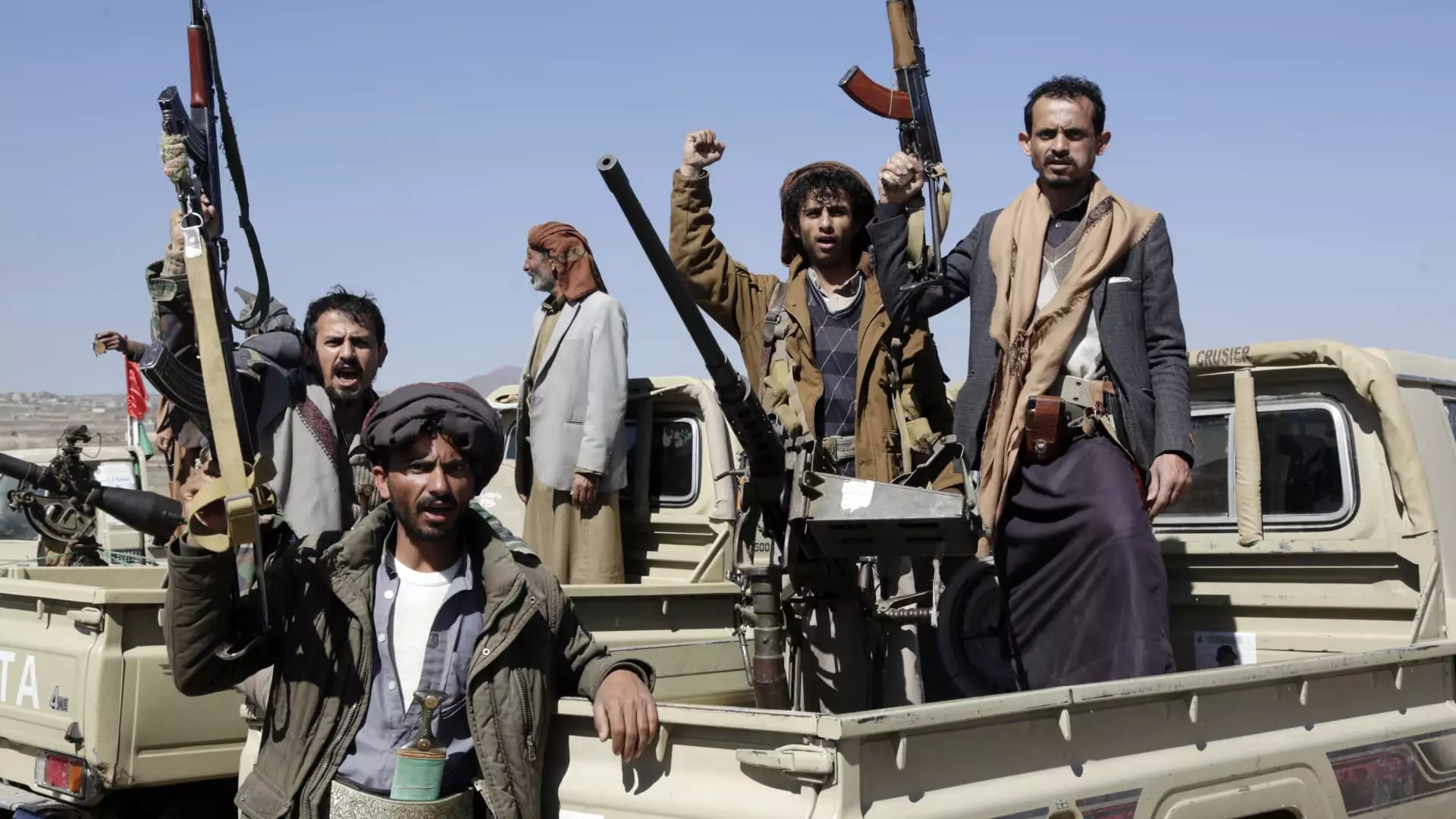In a defiant speech aired on television, the leader of Yemen’s Houthi rebels expressed enthusiasm for directly resisting America and vowed to continue attacks on ships in the Red Sea until Israel’s blockade of Gaza is lifted. These remarks came as the United States escalated airstrikes on Houthi targets, and President Joe Biden acknowledged that the military actions so far had not achieved their intended effect. The White House re-designated the Houthis as a terrorist organization in January 2022, after removing them from the list in the previous year.
President Biden admitted during a press exchange in Washington, D.C., that the ongoing strikes against the Houthis were not halting their activities. Actions taken by the United States have not deterred the rebel group, as evidenced by their launch of anti-ship ballistic missiles at a U.S.-owned tanker shortly after the President’s comments. Although no injuries or damages were reported, this incident underscored the Houthis’ determination.
Abdul-Malek al-Houthi, the leader of the Houthi rebels, emphasized the significant impact of confronting America directly. During an hour-long speech, he argued that U.S. and U.K. strikes on Yemen had only strengthened his military’s capabilities, proving the effectiveness of their approach. Their strategy, which focuses on targeting Israeli ships and those with connections to Israel, has successfully disrupted regional transport and seaborne trade. Major shipping companies have suspended operations in the Red Sea and the Suez Canal, electing to circumnavigate Africa instead. Unfortunately, these delays and supply bottlenecks have resulted in substantial financial losses for businesses.
In addition to discussing the collective impact of their actions, al-Houthi personally criticized President Biden, portraying him as an elderly man unable to navigate an aircraft’s stairs but willing to travel thousands of miles to attack those supporting the Palestinian people in Gaza. The Houthi leader’s comments highlighted the ongoing tensions between the rebels and the Biden administration, fueled by the U.S.’s continued support for Israel’s offensive actions.
The Houthi rebels have initiated a series of attacks on ships in response to Israel’s relentless bombing of the Gaza Strip and the perceived support it receives from the United States. As the conflict intensifies, the rebel group intends to maintain these attacks until Israel lifts its blockade of Gaza. They remain uncompromising in their position, dismissing threats, missile strikes, and international pressure.
Since Israel’s offensive began, triggered by a Hamas attack on southern Israel that claimed many lives and held hostages, the blockade and daily aerial bombardment have led to the deaths of over 24,000 people and severe disruptions in the region’s food supply, according to Gaza’s Hamas-run health ministry.
To understand the ongoing confrontation between the Houthi rebels and the United States, it is crucial to have a clear understanding of who the Houthis are and their influence in Yemen and the wider Middle East. The Houthi rebels, also known as Ansar Allah, control most of Yemen and have been engaged in a long-standing conflict with the internationally recognized government. This rebel group, backed by Iran, follows the Zaidi sect of Shiite Islam and has strong anti-American and anti-Israeli sentiments. They emerged as a powerful force during the Yemeni revolution in 2011 and ultimately seized control of the Yemeni capital, Sanaa, in 2014. Their actions have escalated tensions in the region, drawing significant international attention.
The Houthi rebels’ continued attacks on ships in the Red Sea, coupled with their resistance against American and Israeli interests, pose a significant challenge to regional stability. These rebels remain undeterred by U.S. strikes and assert that their strategy is effective. As the conflict unfolds, it is crucial for international actors to seek a peaceful resolution that addresses the grievances and underlying causes fueling the Yemeni rebel group’s actions. Only through dialogue, diplomacy, and humanitarian efforts can long-term stability be achieved in Yemen and the wider Middle East.


Leave a Reply